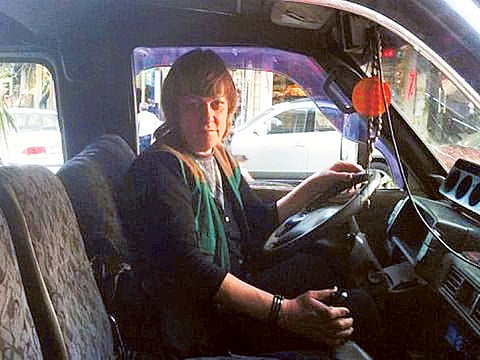With few men left in Syria, women run the show
War has sparked an exodus of Syrian men often leaving the women behind to support their families

Beirut: The military draft has visibly emptied Damascus from its young male population. Almost overnight, young able-bodied men aged 18-40 fled the country to avoid service in the Syrian Army.
Most went to Lebanon and Turkey by bus or Europe via “death boats.” Back home, the city has been transformed into a “female-only” society—at least for now.
Samira is a senior student at the Faculty of Pharmacology at Damascus University. She lives in the upscale Mezzeh neighbourhood west of the Syrian capital and is highly prolific on Twitter and Facebook. Recently she tweeted: “Am seriously thinking of taking off my hijab! What’s it for anyway? From whom should I cover my hair? There are no more men around here!” Three tearful smileys came next, added for emphasis.
Samira was referring to military draft of late 2015, which led to a massive exodus of young men, aged 18-40, who fled to Lebanon, Turkey, or Europe, to avoid conscription into the Syrian Army.
Those who stayed behind had either concluded their compulsory service before the war started in 2011 or were exempted for medical reasons (illness, obesity, heart problems, or chronic disease).
Sole children to their parents, with no male brothers, also escaped the military draft.
Everybody else joined the Syrian Army, either at will or because they had no other choice. Reportedly, 300,000 people have died since the Syria War started, the majority being able-bodied men, either fighting with the Syrian Government or with rebels trying to bring it down.
Young men have been leaving in large numbers for five years now, either to avoid the draft, or searching for security in safer places, or because the current war had destroyed their careers and left them unemployed.
Those who were still visiting on holidays to see family stopped doing so last Christmas, fearing the draft into the armed forces.
According to the state-run Damascus University, the number of male students has dropped to only 20 per cent at the Faculty of Arts and 35 per cent at the Faculty of Sciences.
In certain fields like the Department of Education, male students currently stand at no more than 10 per cent.
This drain has forced Syrian women to venture into fields that were once restricted only to men.
In rural parts of the country, they are now ploughing the land and harvesting crop—just like they did during World War I when so many Syrian males were taken away to Ottoman battlefields, transforming society into a women-only commune.
In today’s world, other professions are being overtaken by women, like waiters and cab drivers.
In one small café in West Mezzeh, a young university girl serves shishas for a living - cleaning the water pipes, preparing their flavoured tobacco, and changing the charcoal for her customers.
Speaking to Gulf News, she said: “People are stunned when they see me carrying their shisha, and smoking its first puffs to maximise flavour.
They stare at me for the first few minutes and then get used to it, when they realise that I offer the best shisha in town!”
Until now this was strictly an all-male profession, often monopolised by Syrian Kurds, and so was serving tables at restaurants at cafes.
Two young girls—one a philosophy major and another studying political science—are now in-charge of a fish restaurant in an upscale Damascus neighbourhood.
Neither of their parents object, freed from the burden of providing for their livelihood in an increasingly expensive and stagnated economy.
Additionally most of the customers at these cafes and restaurants are young girls as well; it is common to see table after another packed with young ladies, playing cards, or posting pictures on their smart phones. Often the number of women-only tables is more than 50 per cent, even in high-end restaurants and hotels of the Syrian capital.
More visible now are women driving public transport vehicles for a living in Damascus. Ranim is one of them, working on a mini-bus between Jaramanah on the outskirts of the city and the Christian neighbourhood of Bab Touma in the old city. She is a single woman with no children, who says that all her brothers left the country after 2011, forcing her to take care of her family.
“I had to stay behind. I get up and go to work not knowing if I will come back alive at the end of the day, just like millions of other Syrians.”
Once during her work, a mortar landed near by — fired by rebels in the Damascus countryside — which wounded her and kept her in hospital for a few days.
During this time, her family was left with no income since she was the only bread-winner.
“This is a price I am willing to pay like millions who decided to stay behind because they love this country.”
Widad Kanafani, a mother of three and graduate of the Damascus University Faculty of Commerce, took the matter a step further, creating a “Women Only” taxi service, employing fifteen ladies as cab drivers at different locations of the Syrian capital.
Part of it is social service, to find jobs for these women in need, and also, generating good income because some women need to commute and feel uncomfortable riding with strangers, especially in late hours of the evening. “Necessity is the mother of all invention” says Kanafani, saying that she will be adding a special cab service for brides on their wedding day, driving them around from hairdresser to tailor.
Sign up for the Daily Briefing
Get the latest news and updates straight to your inbox



